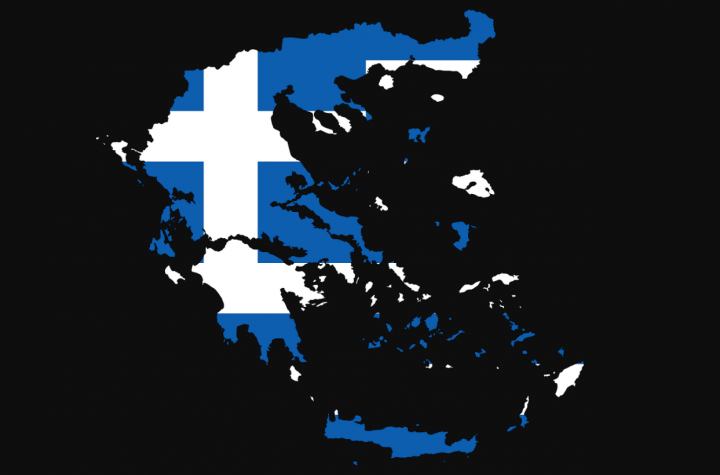Wikipedia has a complicated explanation of fraudulent conveyance and why it is illegal but it simple terms it boils down to this.
I will use an example.
A bank knows you have assets, like a public power company.
The bank wants your public power company but you do not want to sell it.
So the bank does not take no for an answer and instead it allows you to borrow money it knows you cannot afford to pay back because it knows when you default on your debt it can seize the power company as compensation.
httpv
That is basically fraudulent conveyance and it is illegal, at least in the USA.

If a bank knows your finances are a basket case at yet still gives you a loan as a way of seizing your assets when it knows you will default, this is illegal in the USA and this is what has happened to Greece.
The Greek government has been made loans by international banks that these same banks knew that Greece would not be able to pay off.
But how did they know Greece would not be able to pay off these loans?
The trade deficit. I know I keep banging on the trade deficit but it really is the source of all Greece’s problems.
If you take a look at this page and set the time scale to start from 2002 you can see that Greece has a simply massive trade deficit.
Why 2002?
Because this is when Greece started using the Euro and when Greece gave up the right to coin its own currency. When Greece gave up its ability to print its own money the only way Greece could pay of its debts would have been to balance the trade deficit.
With the Drachma the Greek central bank could have simply printed money to devalue the debt, with the Euro, this was not possible, the debt could not be devalued so Greece had to pay back what it owed, more or less in full.
The ECB and the private banks knew this yet they allowed Greece to continue to run up simply massive debts without absolutely no indication that the Greek government would be able to pay this money back.
In short the people who were lending the Greek government money since 2002 must have known that Greece was going to default and they must have also have had a plan as to what they would get as compensation otherwise, why would they have made loans that they knew were going to go bad?
You may say it takes two to tango and you would be right but let us look at the dynamics of the situation.
One the one hand you have politicians, who let us be honest are pretty clueless otherwise they would be working in the private sector.
And on the other hand you have the central banks who control the currency and the private banks who control the economy.
I am sure, when Greek politicians were taking these loans that they highlighted the obvious problems, ie how the hell were these debts supposed to be serviced/repaid and I am also sure the Greek central bank and other private banks told the Greek politicians not to worry, that the Euro was going to be a boom for the Greek economy, they, the central bank were going to make sure this was so and that there were going to be no problems with taking out this debt.
And remember, it is the private banks and private central banks that control the economy. If they tell you things are going to be amazing and that you can take out this debt with no issues I am sure you are going to take their word for it.
I mean, why would they lie to you?
The Greek central banks must have the interests of Greece at heart right?
And why would they want to make loans that they knew were going to go bad?
I am sure the politicians thought the same thing which is why they believed what they were being told.
No I am not going to pretend I know the intricacies of the law, I am not a lawyer, but what has happened to Greece seems to be a text-book definition of fraudulent conveyance and even though, to my knowledge this is only illegal in the USA, a lot of banks who made loans to the Greek government were in the USA and that has to count for something.




I could not find a reliable graph for Greek gvmt debt over the same, period but if lending was rising at the same time as the trade imbalance then maybe banks lending to Greece had not heard the saying
“Annual income twenty pounds, annual expenditure nineteen pounds nineteen and six, result happiness. Annual income twenty pounds, annual expenditure twenty pounds ought and six, result misery.”
You do not bang on about the trade deficit too much , it is at the heart of the matter.
A google search shows the trade problem was well known long before 2000.
http://www.unich.it/docenti/bagnai/blog/Folly_of_the_euro.pdf
http://blogs.ft.com/martin-wolf-exchange/2012/02/16/can-one-have-balance-of-payments-crises-in-a-currency-union/#axzz1vW6imvoe
http://media.ft.com/cms/93cf9a44-57ec-11e1-ae89-00144feabdc0.pdf
thank you for the references. they lead to a deeper point, highlighted by the FT article. individual trade deficits which I have highlighted before (or you could say constantly!)
if the Greeks as individuals have a balanced trade account then everything should be okay. Greeks are not different from people in other countries, they have to balance their personal finances. if they do, all okay, if they do not, then they get it into debt or go bankrupt.
my point is this. Greeks as individuals did not get any special treatment when they started using the Euro, they had to balance their personal books like they did before.
So why the problem? The Greek government did not balance its books and it is now passing its issues onto the Greek people through higher taxes and the theft of pensions, hence the crisis.
Unfortunately this passing of the buck is making it impossible for many Greeks to balance their personal books because they are having to give so much of their money to the government, hence the crisis….
Basically the government is the problem, it spends to much, and it makes it difficult for Greeks to balance their own personal trade accounts while paying taxes.
And everything they have done since 2008 has only amplified the problems that caused the crisis in the first place, the whole situation is complete and utter madness, or, fraudulent conveyance……….